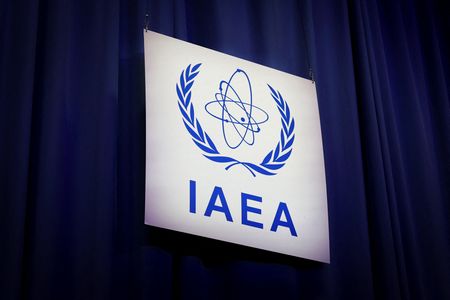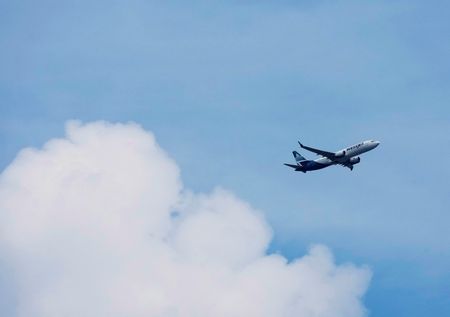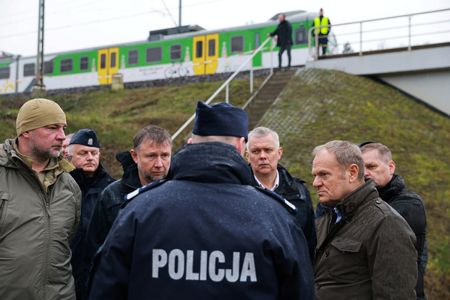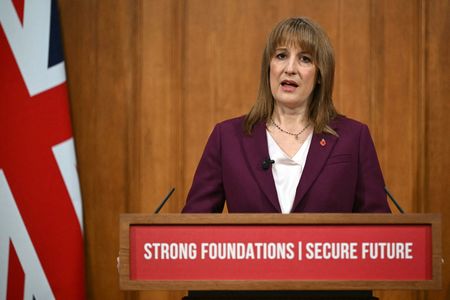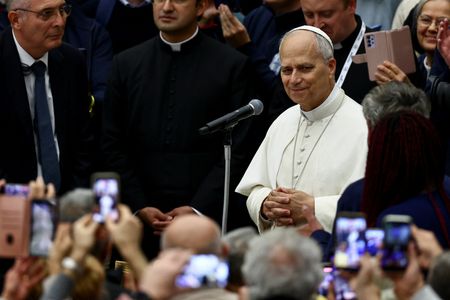By Francois Murphy
VIENNA (Reuters) -Europe’s top three powers and the U.S. have submitted a draft resolution to this week’s meeting of the U.N. atomic watchdog’s 35-nation Board of Governors demanding answers and access from Iran over its bombed nuclear sites and enriched uranium stock.
The draft resolution submitted on Tuesday and seen by Reuters, which diplomats said is highly likely to be passed as early as Wednesday, follows a damning International Atomic Energy Agency report on Iran sent to member states last week.
It said Tehran has still not let inspectors into the nuclear sites Israel and the United States bombed in June and that accounting for the uranium stock is “long overdue”.
Iran has still not informed the IAEA of the status of either of those sites or that stock, which includes material enriched to up to 60% purity, close to the roughly 90% of weapons-grade.
“Iran must … provide the (International Atomic Energy) Agency without delay with precise information on nuclear material accountancy and safeguarded nuclear facilities in Iran, and grant the Agency all access it requires to verify this information,” read the draft text.
IRAN WARNS OF RETALIATION
The draft resolution stops well short of finding Iran in breach of its obligations, as a resolution in June did just before Israel attacked, but Iran has warned that any resolution against it will be met with retaliation.
“Should this draft resolution be adopted, it will unavoidably and adversely affect the positive course of cooperation between Iran and the IAEA,” Iran’s mission to the IAEA said on X on Friday, calling the push for a resolution a “major mistake”.
Western diplomats had billed the draft resolution as mainly technical, giving fresh instructions to the IAEA to report on Iran’s nuclear activities after a 10-year mandate from 2015, the year of a nuclear deal between Iran and major powers, expired.
Yet it included not only language admonishing Iran for its poor cooperation and calling for a diplomatic solution – an apparent reference to possible talks with the U.S. – but also a demand that Iran implement the so-called Additional Protocol expanding IAEA powers.
Implementing the Additional Protocol, which Iran signed in 2003 but never ratified, was a cornerstone of the 2015 deal, which lifted sanctions against Iran in exchange for tight restrictions on its nuclear activities.
The Additional Protocol grants the IAEA broader and more intrusive oversight of a country’s nuclear activities, such as the power to carry out snap inspections at undeclared locations.
The 2015 deal unravelled after President Donald Trump pulled the United States out of it in 2018. Iran retaliated by abandoning the restrictions, including the Additional Protocol.
(Reporting by Francois Murphy; Editing by Leslie Adler and Deepa Babington)

